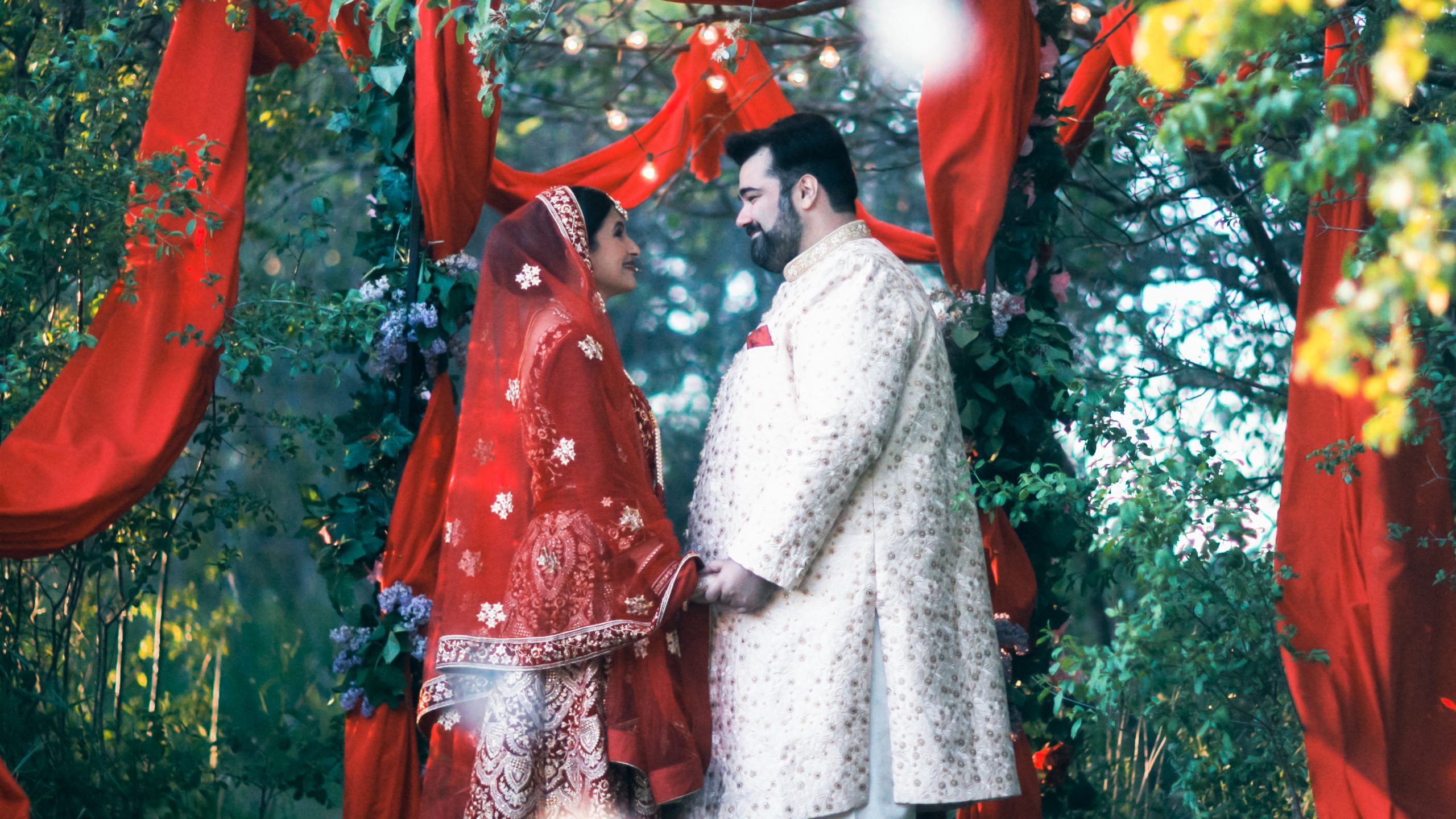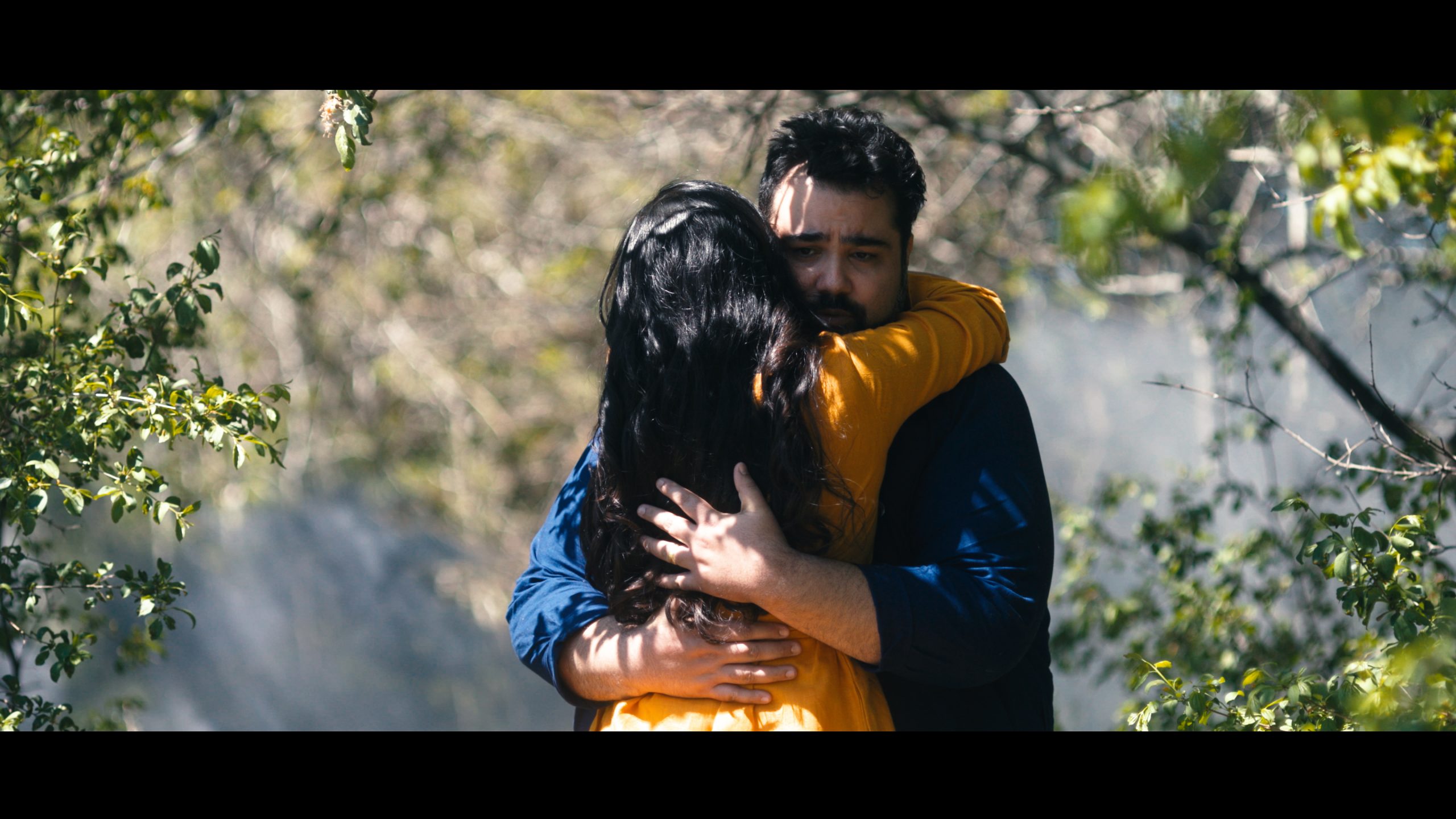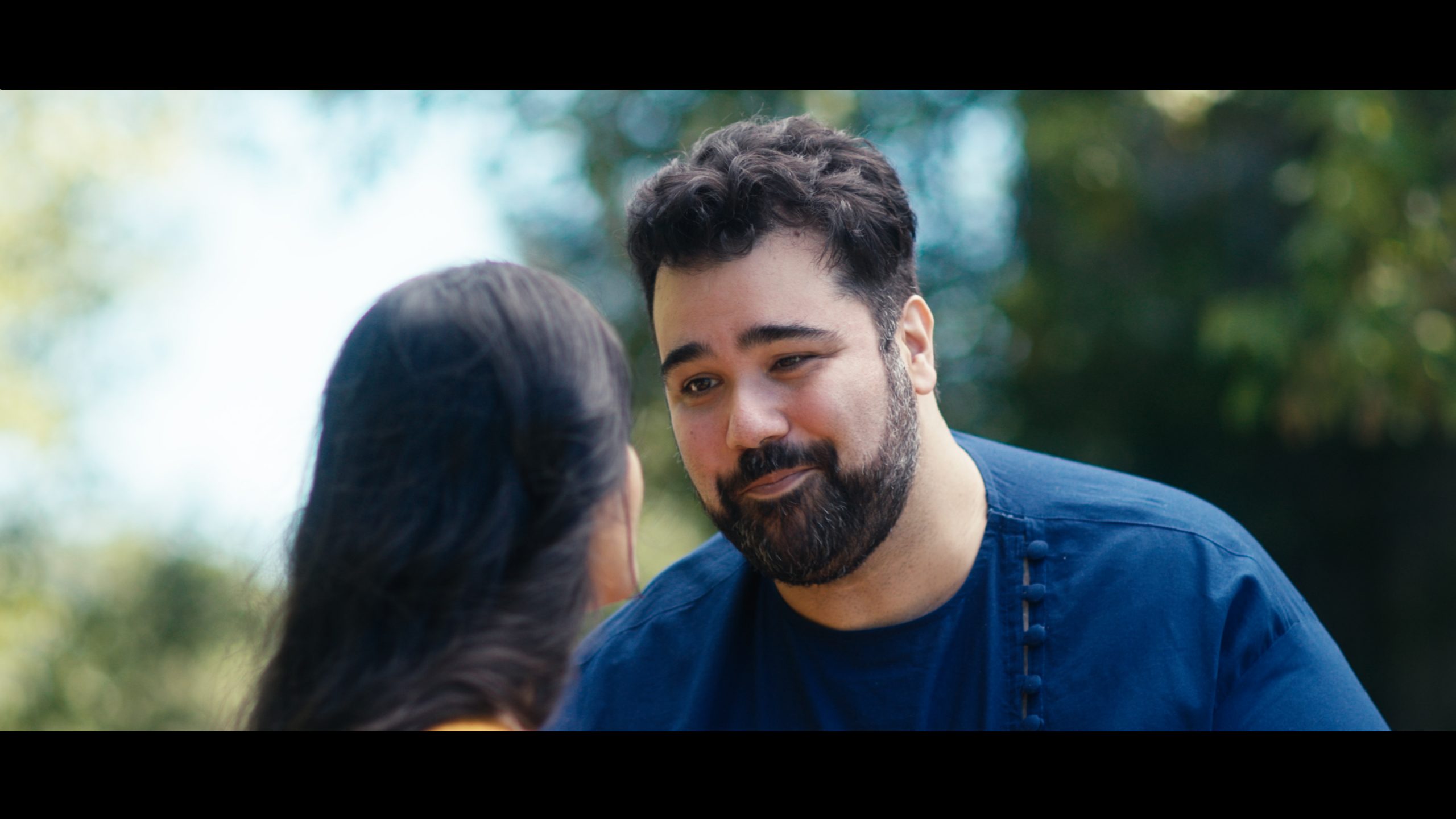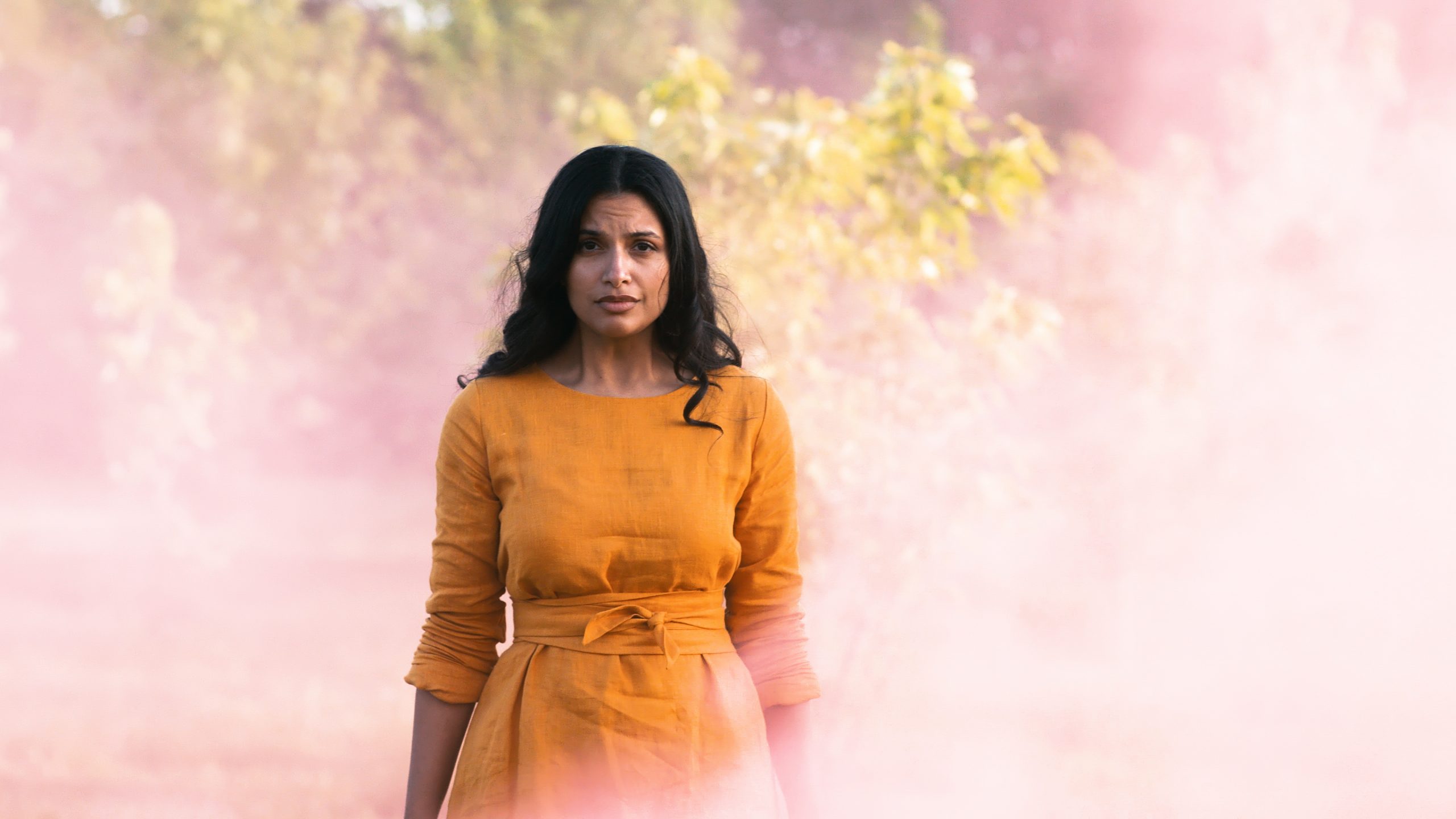A love story that not even death could thwart: providing opera fans a feast of music and colour, Against the Grain Theatre’s production of Gustav Holst’s Sāvitri beautifully conveys the love and devotion that this ancient story is known for.
Filmed in Consecan Village, Prince Edward Country, against a backdrop of lush forest overlooking Lake Ontario, Holst’s Sāvitri is based off the Hindu myth in the Mahābhārata. Sāvitri, a princess gifted to her parents by the sun god Savitr, leaves her home in search of a husband. She falls in love with Satyavan, an exiled prince, who is fated to die one year after their marriage. Holst’s opera takes place on the day that Yama, the God of Death, arrives to take Satyavan back to his kingdom. Sāvitri, who has been waiting for Yama, charms the God and in return he grants her anything her heart desires…so long as it’s not Satyavan’s life.
This production marks the directorial debut of Canadian soprano Miriam Khali, with Simran Claire as associate director, and Simon Rivard as conductor along with soprano Meher Pavri as Sāvitri, tenor Andrew Haji as Satyavan, and bass-baritone Vartan Gabrielian as Yama. Sung entirely in English, this rendering was offered with English, French, and Hindi subtitles, and premiered online on AtG’s YouTube channel on June 23rd.
Having only recently discovered Holst’s version of Sāvitri, and being a long-time fan of the Hindu myth (and South Asian cultures in general), I wasn’t sure what to expect. Holst, an English composer, created the opera in 1908 after attending a fair in England that displayed art from India. The artifacts exhibited left a big impression on Holst, one that culminated into a 20-year love affair with South Asian literature and art and the eventual creation of his Sāvitri. As such, Holst’s opera is a western interpretation meant for a western audience which, naturally, can lead to some concerns about cultural appropriation and the West’s historical fetishization of South Asia. It can also lead to questions about adapting this opera for modern day, more culturally aware, audiences.
Yet, AtG’s Sāvitri rose up to these concerns and provided a genuine authenticity that was refreshing. Largely due to the people working behind and in front of the camera, Sāvitri remained faithful to the original myth despite being sung in English and despite its Western classical score. As such, I found the opera charming, and I could fully immerse myself in the emotional story unfolding before me.
From its opening scenes, right up until its final notes, Sāvitri was utterly mesmerizing to behold. Beginning with a beautiful view of Pavri overlooking the ocean (Lake Ontario) at sunset, Sāvitri narrates her life and the moments leading up to Yama’s arrival, which included scenes of her marriage to Haji’s Satyavan. These shots—Sāvitri’s genuine happiness at marrying Satyavan—were interspersed throughout the film and enhanced the emotional depth of the score. The film then cuts to the ominous presence that is Gabrielian’s Yama, whose booming voice, and half hidden face, reveal to both Sāvitri and the audience that he is, “Death. [He] is the law that no man breaketh.”
Pavri’s Sāvitri was the star of the show and there wasn’t a moment that she didn’t command your attention. It was incredibly refreshing and heartwarming to see a woman of colour, especially a South Asian woman, in the role of Sāvitri. Pavri was the courageous, charming, heroine whose love and devotion could be felt through each of her arias. The soprano’s gentle but commanding voice was the perfect compliment to both Haji’s sweet tones and Gabrielian’s more gravelly vocalism. The bass-baritone did a wonderful job of adding an ethereal quality to the God of Death. His performance as Yama was intimidating, stoic, yet compassionate. Meanwhile, Haji’s Satyavan was perfectly paired with Pavri’s Sāvitri; I couldn’t help but fall in love with his noble, romantic, portrayal of the tragic prince. Haji brought a heroic quality to the prince especially as he sings, “What wife in all the world could compare to Sāvitri?” Which probably explains why I cried when Yama finally took him away, leaving a heartbroken Sāvitri who could only scream, “Satyavan!”
The production savvily used technology to underscore the emotion of the story. In fact, I would argue that aside from its strong performances, Sāvitri’s strength came from the way it used its digital format to fully sell its 35 minute story. Holst intended for Sāvitri to be performed outside. As such, the forest setting used here imbued the staging with a dreamlike, magical, quality reserved for folktales and myths. As such, the cinematographer’s focus on sunlight peeking through the leaves and wind rustling branches makes us believe the characters are walking through the colourful forests of India…instead of the more familiar Ontarian shores.
On that note, colour also played a big role in this opera. Brightly coloured smoke was used to show shifts in the narrative as well as to provide Yama with an extra otherworldly quality. The costumes, bright and stunning, used colours that were symbolic for each character such as yellow for Sāvitri, who is often associated with that colour in South India.
While Sāvitri is an English opera, and I fully enjoyed its Western classical idiom, I would like to have seen more exploration with ragas (classical South Asian music) throughout the opera, instead of relegating them just to the credits. Otherwise, I was utterly entranced by this fascinating digital fantasy.
Against the Grain Theatre’s Sāvitri is available online until July 11th. Fans of opera and Hindu mythology should experience Sāvitri while it’s still available.
Free registration to view Sāvitri, can be found here.










